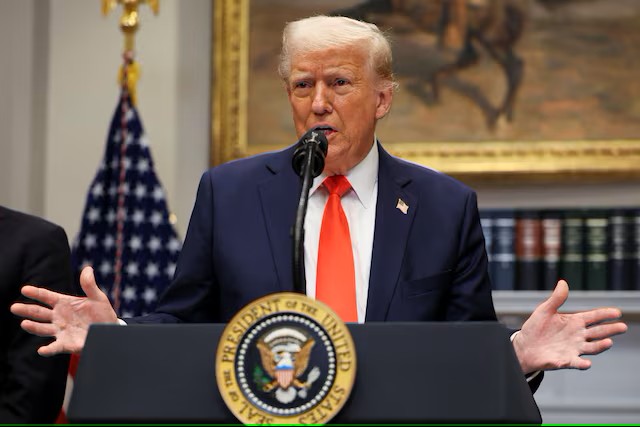March 3, 2025, marked a day of substantial policy shifts under President Donald Trump's administration. The President announced new trade tariffs affecting North American partners, suspended military aid to Ukraine amid diplomatic tensions, and issued an executive order to increase logging in national forests. These actions have far-reaching implications for the U.S. economy, foreign relations, and environmental policy.theguardian.com
Imposition of Tariffs on Canada and Mexico
President Trump confirmed that, effective March 4, 2025, the United States would impose a 25% tariff on imports from Canada and Mexico. This decision aims to address concerns over illegal immigration and the influx of fentanyl into the U.S. Despite efforts by both neighboring countries to enhance border security, the administration expressed dissatisfaction with the results, particularly regarding fentanyl prevention. The President emphasized that there was "no room left" for negotiation to avoid these tariffs. The announcement led to a significant downturn in the U.S. stock market, with major indexes experiencing notable declines. reuters.comen.wikipedia.orgnypost.com+1en.wikipedia.org+1en.wikipedia.org+2youtube.com+2nypost.com+2
Suspension of Military Aid to Ukraine
In a move that has raised international concern, President Trump ordered a "pause" on U.S. military aid to Ukraine. This decision is intended to pressure Ukrainian President Volodymyr Zelenskyy into engaging in peace negotiations with Russia. The suspension follows a contentious meeting at the White House, where President Trump and Vice President JD Vance expressed frustration over Ukraine's perceived lack of gratitude for the substantial aid provided since Russia's invasion. Critics argue that this suspension endangers U.S. national security and could be seen as politically motivated. abcnews.go.com+5apnews.com+5apnews.com+5apnews.com
Expansion of Logging in National Forests
President Trump issued an executive order to significantly increase logging in U.S. national forests and public lands. This directive affects approximately 280 million acres, aiming to boost domestic timber production and reduce reliance on foreign timber. The order allows the U.S. Forest Service and Bureau of Land Management to bypass certain environmental regulations, including those protecting endangered species. Environmental groups have criticized this move, arguing it could escalate wildfire risks, destroy habitats, and pollute water resources. The appointment of Tom Schultz, a lumber industry executive, to lead the Forest Service has further fueled concerns about prioritizing industry interests over conservation. theguardian.com
Conclusion
The policy decisions enacted on March 3, 2025, reflect the administration's assertive approach to trade, foreign policy, and domestic resource management. While intended to protect national interests and stimulate economic growth, these actions have sparked debate and concern among various stakeholders. The long-term impacts on international relations, environmental sustainability, and the U.S. economy remain to be seen.
